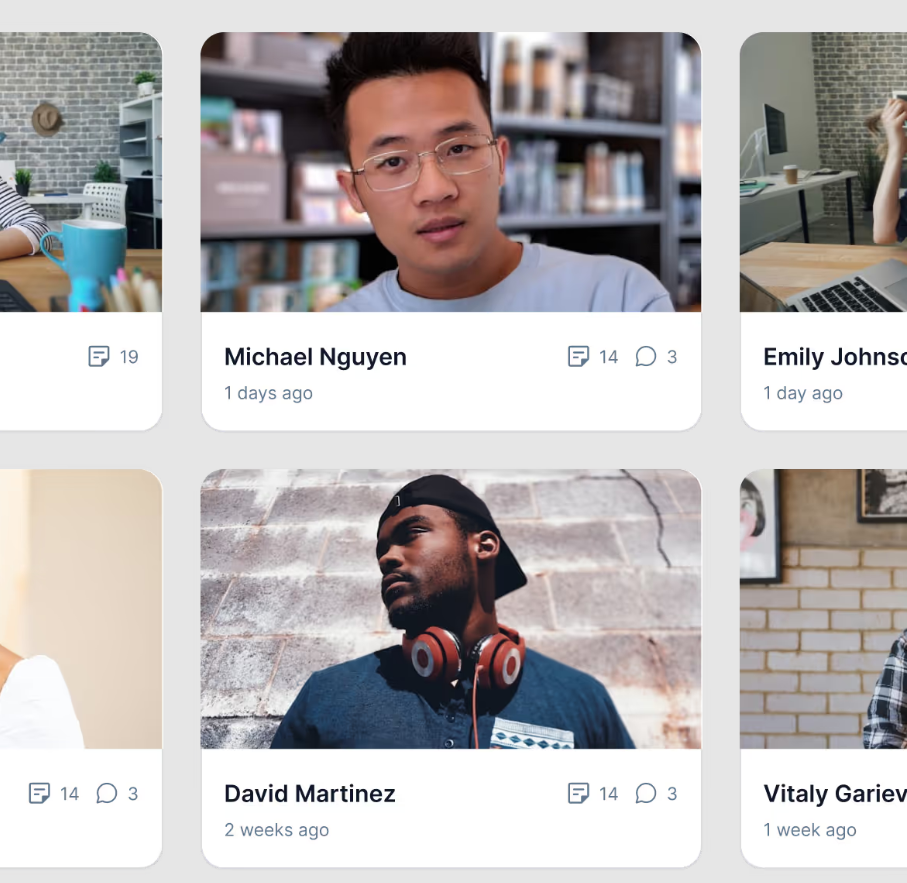10 Ways AI Helps Eliminate Bias in Customer Interviews
Using AI in customer research isn’t just about saving time - it also helps ensure the research is consistent, comprehensive and accurate.
%20(5).jpg)
Bias in user interviews can undermine the integrity of customer research, skewing insights and misdirecting product decisions. But what is bias in user interviews? It refers to any factor that distorts the data or influences participants’ responses in a way that doesn’t reflect their true thoughts, needs, or behaviors. Bias can manifest in many forms: leading questions, subconscious assumptions by the interviewer, or even the composition of the participant group.
The risks of bias are significant. It can result in developing features no one needs, misunderstanding user pain points, or alienating key demographics. While traditional methods have long been the backbone of user research, they are not immune to these challenges. Fortunately, AI-powered tools, like Strella’s AI-moderated interviews, offer new solutions, complementing and enhancing traditional methods by addressing these biases directly. Learn how AI minimizes bias in your question guide, during interviews, and in the synthesis phase, and why it’s the future of customer research.
AI-Generated Discussion Guide: Using AI to Craft Unbiased Question Guides
Creating an effective question guide is foundational to unbiased interviewing. Yet, even the most experienced researchers can unintentionally introduce bias. Here’s how AI eliminates this risk:
- Avoiding Leading the participant: AI tools analyze your question set to identify and flag language that might unintentionally lead participants or suggest desired answers. For instance, phrases like “Would you prefer feature X over Y?” could be restructured as “What are your thoughts on features X and Y?” to maintain neutrality. This ensures unbiased interviews and preserves the integrity of your AI-moderated user interviews.
- Unbiased Questions: AI can play a pivotal role in ensuring that the language used in interviews is neutral, inclusive, and respectful. AI can analyze and refine questions to remove unintended prejudice and avoid alienating participants.
AI-Moderated Interviews: Eliminating Bias During the Interview
The interview phase is often where bias subtly creeps in, but AI moderators provide a game-changing solution:
- Consistency Across Interviews: With AI, the order and wording of questions remain consistent across all interviews. This eliminates variability introduced by human moderators, ensuring data integrity and comparability across your AI customer research.
- No Personal Biases: AI moderators operate without personal assumptions, expectations, or subconscious preferences, maintaining a neutral tone and approach throughout the interaction. This ensures unbiased interviews that are free from human influence.
- Encouraging Honest and Direct Responses: Many participants feel more comfortable opening up to an AI moderator, especially when discussing sensitive or controversial topics. Without fear of judgment, their responses are more candid and insightful, leading to richer AI-powered human insights.
- Global Accessibility and Inclusivity: AI-moderated user interviews transcend barriers of language, culture, and time zones. Automatic translation capabilities allow you to engage participants worldwide, ensuring diverse perspectives that reflect a broader user base. This inclusivity reduces sample bias, providing insights that are truly representative of your audience.
- Run interviews at scale: AI allows you to conduct more interviews in less time, reaching a wider audience without increasing costs. By engaging a larger sample, you mitigate the risk of relying on a limited or non-representative group, which is essential for unbiased interviewing.
AI-Powered Synthesis: Ensuring Insights Stay Unbiased
AI accelerates the synthesis phase, while also increasing quality by ensuring process is as thorough and impartial as possible:
- Comprehensive Analysis: Unlike humans, AI doesn’t overlook details or rely on selective listening. It systematically reviews every response, ensuring no stone is left unturned in your AI customer research.
- Avoid confirmation bias: AI helps guard against confirmation bias by focusing on all data points, not just those that align with preconceived hypotheses. This leads to more objective and unbiased interviewing outcomes.
- Combining Diverse Inputs: AI-powered tools aggregate feedback from multiple researchers or stakeholders, weighing all perspectives equally. This is especially valuable when team members couldn’t attend every interview, ensuring collective insights are fully integrated. It’s a clear advantage of using AI-powered human insights tools.
%20(4).jpg)
AI in Research: More Than Just Speed—It Elevates Quality
Using AI in research isn’t just about saving time. It help teams gather and synthesize customer feedback with clarity, precision, and free from subconscious biases - ultimately unlocking faster, smarter, and more customer-centric decisions.
With tools like Strella, teams can streamline their entire research process within a single, integrated platform. AI enhances each step - from drafting your question guide to moderating interviews and synthesizing insights - ensuring that your research remains consistent, comprehensive, and accurate from start to finish. Explore how Strella can transform your research process and provide you with the unbiased insights so you can make decisions more quickly, and with greater confidence. Schedule a demo with our team to get started!

%20(1).jpg)

